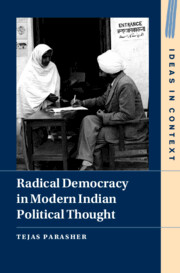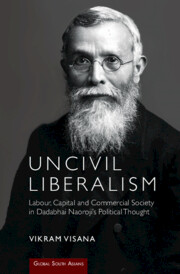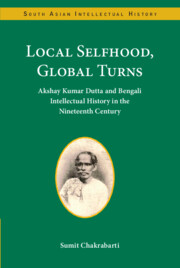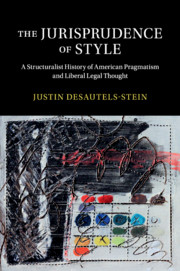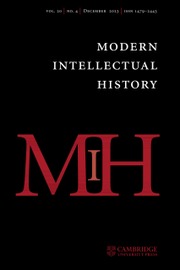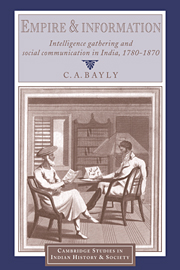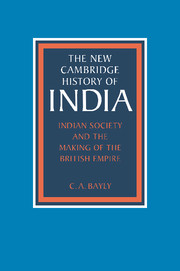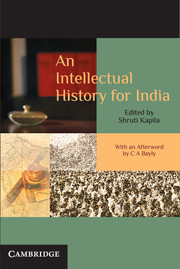Recovering Liberties
Indian Thought in the Age of Liberalism and Empire
£30.99
Part of Ideas in Context
- Author: C. A. Bayly, University of Cambridge
- Date Published: November 2011
- availability: Available
- format: Paperback
- isbn: 9781107601475
£
30.99
Paperback
Other available formats:
Hardback, eBook
Looking for an inspection copy?
This title is not currently available on inspection.
-
One of the world's leading historians examines the great Indian liberal tradition, stretching from Rammohan Roy in the 1820s, through Dadabhai Naoroji in the 1880s to G. K. Gokhale in the 1900s. This powerful new study shows how the ideas of constitutional, and later 'communitarian' liberals influenced, but were also rejected by their opponents and successors, including Nehru, Gandhi, Indian socialists, radical democrats and proponents of Hindu nationalism. Equally, Recovering Liberties contributes to the rapidly developing field of global intellectual history, demonstrating that the ideas we associate with major Western thinkers – Mills, Comte, Spencer and Marx – were received and transformed by Indian intellectuals in the light of their own traditions to demand justice, racial equality and political representation. In doing so, Christopher Bayly throws fresh light on the nature and limitations of European political thought and re-examines the origins of Indian democracy.
Read more- One of the world's leading historians examines the great Indian liberal tradition
- Provides new insights into the nature of European political thought and reconsiders the origins of Indian democracy
- A vibrant contribution to the growing fields of global intellectual history and the history of South Asia
Reviews & endorsements
'A fine study of the circulation and transformation of liberal agents, ideas and institutions in India from the 1820s. His extensive bibliography in both Indian and English scholarship will doubtless enable further studies of trans- and inter-culturation, liberalization and the nineteenth century.' Regenia Gagnier, Victorian Studies
Customer reviews
Not yet reviewed
Be the first to review
Review was not posted due to profanity
×Product details
- Date Published: November 2011
- format: Paperback
- isbn: 9781107601475
- length: 404 pages
- dimensions: 228 x 153 x 18 mm
- weight: 0.64kg
- availability: Available
Table of Contents
Preface
Introduction: the meanings of liberalism in colonial India
1. The social and intellectual contexts of early Indian liberalism, c.1750–1840
2. The advent of liberal thought in India: constitutions, revolutions and juries
3. The advent of liberal thought in India and beyond: civil society and the press
4. After Rammohan: benign sociology and statistical liberalism
5. Living as liberals: Bengal and Bombay c.1840–1880
6. Thinking as liberals: historicism, race, society and economy, c.1840–1848
7. Giants with feet of clay: Asian critics and Victorian sages to 1914
8. Liberals in the Desh: North Indian Hindus and the Muslim Dilemma
9. 'Communitarianism': Indian liberalism transformed, c.1890–1916
10. Inter-war: Indian discourse and controversy 1919–1935
11. Anti-liberalism, 'counter-liberalism' and liberalism's afterlife, 1920–1950
Conclusion: lineages of liberalism in India
Bibliography.Instructors have used or reviewed this title for the following courses
- Introduction to South Asia
Sorry, this resource is locked
Please register or sign in to request access. If you are having problems accessing these resources please email [email protected]
Register Sign in» Proceed
You are now leaving the Cambridge University Press website. Your eBook purchase and download will be completed by our partner www.ebooks.com. Please see the permission section of the www.ebooks.com catalogue page for details of the print & copy limits on our eBooks.
Continue ×Are you sure you want to delete your account?
This cannot be undone.
Thank you for your feedback which will help us improve our service.
If you requested a response, we will make sure to get back to you shortly.
×

